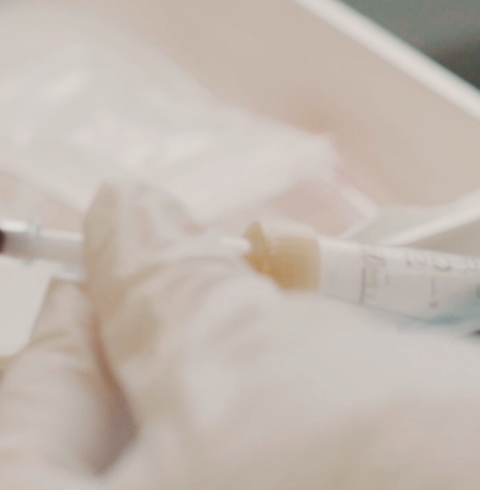
Your
Tests
"You are unique - and so is your treatment"

"You are unique - and so is your treatment"
YOUR JOURNEY
We offer a wide and comprehensive range of diagnostic tests in order to find the optimal treatment concept for you, also including:
GP is a high-throughput DNA sequencing technology, and one of the greatest advances in the biological sciences in the last decades. Medical research, and especially the cancer field is at the forefront of these efforts given the genetic aspects of the disease. We have integrated GP into our clinical cancer diagnostics to develop individualized treatment options by targeting specific genes and mutations, depending on your GP results.
As essential part of our most advanced personalized treatment approach, we recommend a Tumor Associated Antigen (TAA) - screening that enables the analysis of tumor associated antigens (in order to identify treatment targets). It is known that tumors show the accumulation of several genetic modifications, thus providing cancer cells with the selective growth advantage to initiate expansion. Now, sophisticated high-throughput technologies (GP, TAA, ...) enable the identification of these mutated genes in cancers, leading to potent targeted immunotherapy.
Impaired DNA mismatch repair is often found in tumor tissue. Presence of DNA-repair/break-chain mechanism may influence prognosis and response to treatment strategies.
Tumor Mutational Burden, or TMB, is a new, quantitative clinical marker that can help predict responses to certain cancer immunotherapies. Therefore, a genomic profiling is performed on formalin-fixed, paraffin-embedded (FFPE) samples, whilst in parallel the DNA and RNA from the same sample is analyzed for interrogating single nucleotide variants, amplifications, splice variants, and fusions in a single sequencing run.
Blood-genotyping allows for characterization of specific proteins on white blood cells. Depending on the genotype, specific immunotherapeutic strategies are available.
Tumors shed fragments of DNA into the bloodstream, a fact that can potentially be used to:
In many cases, a tissue biopsy is hard on the patient, as it is painful, or even potentially risky for the patient. The development of non-invasive methods to detect and monitor tumors is a major challenge in oncology. Cell-free circulating tumor DNA (ctDNA) and circulating tumor cells (CTCs) are plasma sources of tumor DNA ctDNA liquid biopsy reveals specific molecular changes that occur in the tumor in real time.
Recent scientific advances allow for isolation and molecular characterization of circulating tumor cells (CTCs) in the peripheral blood of cancer patients. Studies on CTCs have enabled the identification of heterogeneous drug resistance mechanisms that can coexist in treatment refractory tumors. CTC analyses can be used for noninvasive monitoring in patients, showing presence of tumor cells over time. Analysis of CTCs has important clinical implications for understanding and predicting the development of treatment resistance in a variety of solid tumors, potentially leading to optimal design of treatment strategies.
Circulating tumour DNA (ctDNA) isolated from peripheral blood may be used as a biomarker to detect gene mutations. Knowledge of certain mutations is important for the diagnosis, treatment, and prognosis of cancer.
Chemosensitivity testing involves the analysis of circulating tumour cells (CTCs), and enables us to tailor an individualized cancer treatment for you. In this test, cultures of CTCs are exposed to a wide range of available cancer therapy agents, including conventional chemotherapeutic agents, antibodies and biological substances. Also the cell’s resistance or sensitivity to treatment is analysed. Sensitivity to treatment can be calculated by measuring the extent to which a chemotherapy agent induces destruction of cultured cells. Also, resistant mechanisms present in the culture of CTCs can be evaluated. Mechanisms of resistance may be responsible for the failure of primary therapy and therefore are a promising target of individualized anti-cancer therapy.
Overall, the chemosensitivity test provides a panel of treatment options with objective evidence of treatment efficacy for the individual patient.
Share on:
We would like to share with you a comment in regard to the corona virus pandemia. Due to the current events, more information should be highlighted relating to our field of medicine
FDA Pipeline: Agents in DLBCL, SCLC, AML, and More
Contact us for a free consultation with our specialized oncology team.
